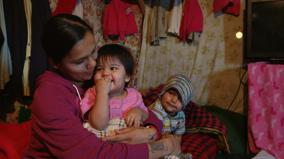Pipelines, Power and Democracy
2015
1 h 28 min
Coming soon
Pipelines, Power and Democracy is a striking documentary that follows the mobilization of ordinary people to thwart the ambitions of oil companies and halt, even if only temporarily, the advance of pipelines across Quebec. In the process, the film offers a sharp reminder that power can be accessible to all.
This work deals with mature subject matter. Viewer discretion is advised.

Details
Pipelines, Power and Democracy is a striking documentary that follows the mobilization of ordinary people to thwart the ambitions of oil companies and halt, even if only temporarily, the advance of pipelines across Quebec. In the process, the film offers a sharp reminder that power can be accessible to all.
This work deals with mature subject matter. Viewer discretion is advised.
-
participationDaniel BretonAndré BélisleAlyssa Symons-BélangerMikael RiouxMichel BélangerÉmeraude BoisvertPatrick BoninMike BonnanoJacqueline BretonAlain BrunelKim CornelissenPierre-Luc Demers-HébertJean-Marie DionPhilippe DumontPaul DupuisClaudie GagnéPatrick GivreSteven GuilbeaultOlivier HuardNatasha Kanapé FontaineLucie LacoursièreJessica Lambert MassicottePhilippe LandryJulie LeblancSophie-Anne LegendreLuc LemoineShaun LovejoySébastien MarielGuy MarsilÉric MichaudGabriel Nadeau-DuboisMarie-Philip OuelletNicholas OuelletGilles E. PelletierKarine PéloffyMartin PoirierGeneviève PuskasSylvie RobertFrançois SaillantChristian SimardCorinne TrubianoMarius Vigne
-
directorOlivier D. Asselin
-
researchOlivier D. AsselinSantiago Bertolino
-
scriptOlivier D. AsselinSantiago Bertolino
-
director of photographyOlivier D. Asselin
-
editingBoban Chaldovich
-
original musicClaude Fradette
-
sound designPatrice LeBlanc
-
project developmentLucie PageauMalcolm Guy
-
additional cameraNicolas FalcimaigneSantiago BertolinoAriane LorrainMatias OllivierStéphane GroleauMathieu LeBlanc
-
location soundSantiago BertolinoStéphane BarsalouSimon Van VlietAriane LorrainDavid Widginton
-
technical support - editingPierre DupontIsabelle PainchaudPatrick Trahan
-
titlesJacques Bertrand SimardCynthia Ouellet
-
infographicsJacques Bertrand SimardCynthia Ouellet
-
online editorDenis Pilon
-
foleyAlexis Farand
-
re-recordingSerge Boivin
-
musicianClaude FradetteRobin Boulianne
-
press relationsMarie-Claude Lamoureux
-
marketing managerFrançois Jacques
-
marketing manager - assistanceTheodora Kolovos
-
administratorSia Koukoulas
-
production coordinatorChinda Phommarinh
-
administrative assistantPascale Savoie-Brideau
-
technical coordinatorMira Mailhot
-
associate producerMélanie Lasnier
-
producerDenis McCready
-
executive producerColette Loumède

















